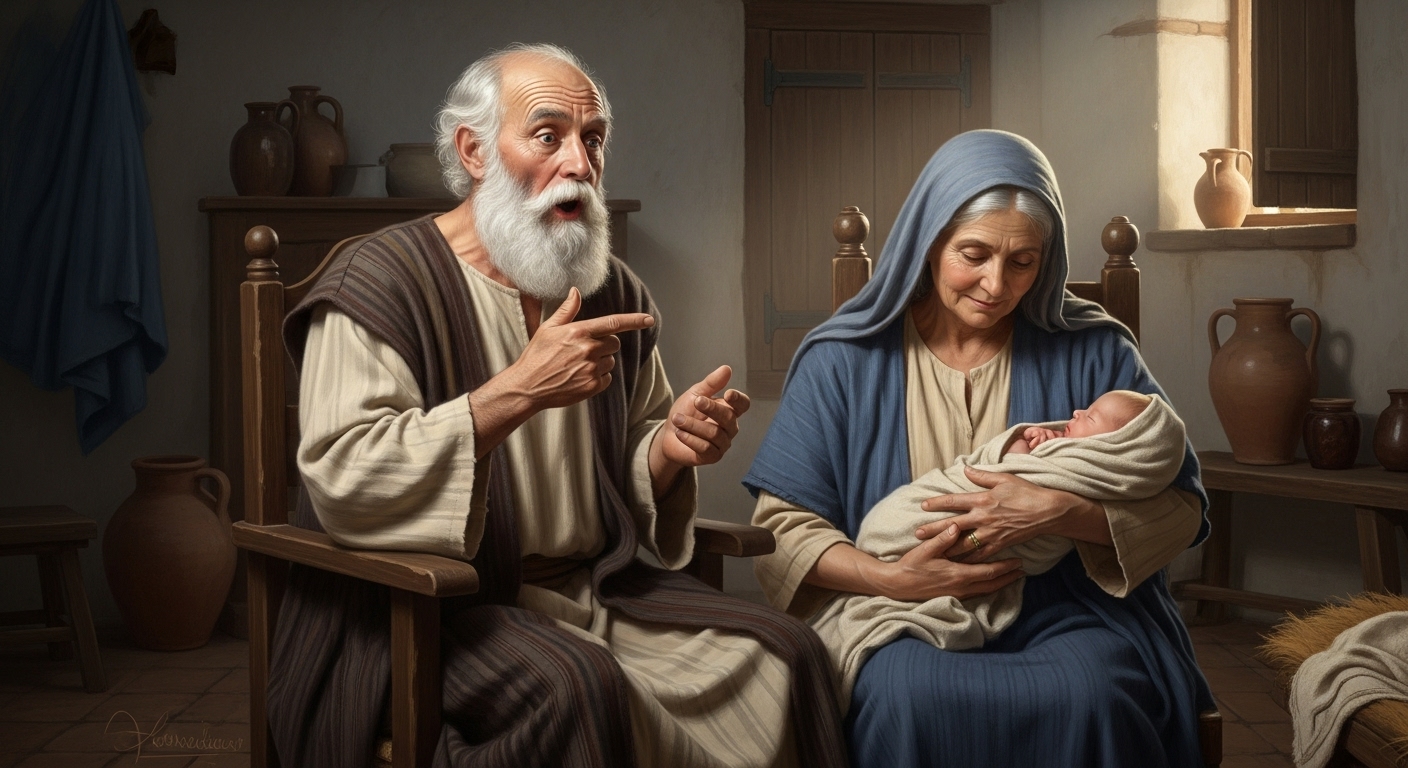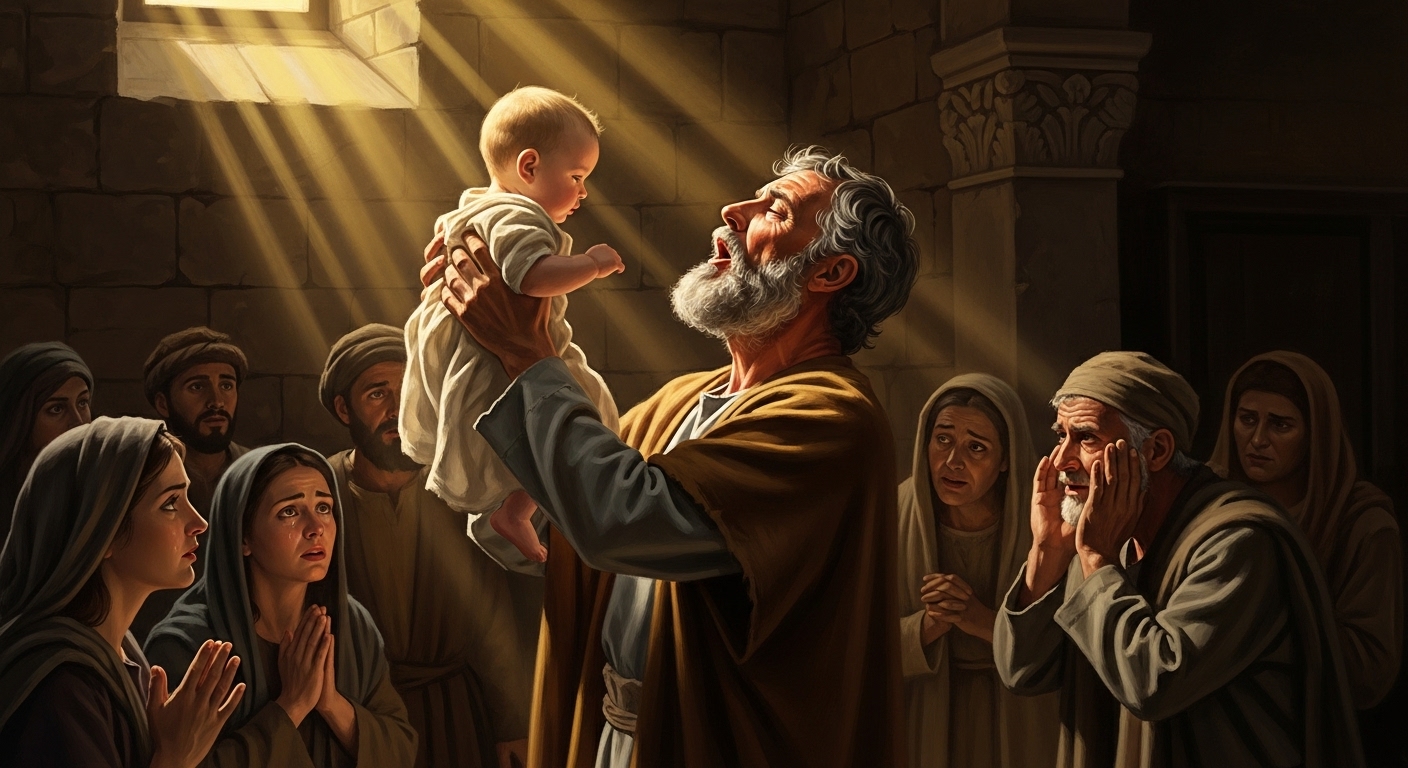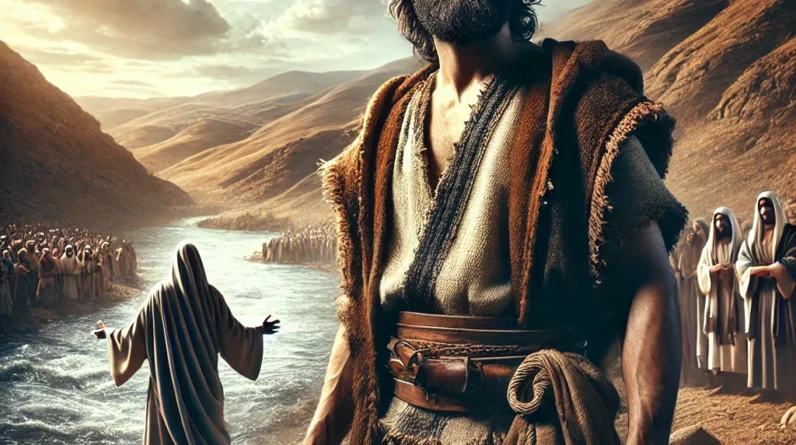Zechariah in the Gospel of Luke: A Pillar of Faith and Fatherhood

1. Introduction
Have you ever been caught between hope and silence? That’s the place Zechariah finds himself in the opening chapters of Luke’s Gospel. You’ll meet a man who served faithfully, lived through disappointment, and then became the mouthpiece of a promise fulfilled. His journey is not just ancient history; it’s a picture of how God can take your waiting and turn it into worship.
In the gospel account, Zechariah experiences divine interruption, a period of muteness, and then a powerful prophetic release. His life tells you something essential: faith isn’t always loud at first, but it becomes a foundation for boldness and praise when God’s timing arrives. This matters because you, too, are forming a legacy—through the way you wait, trust, and speak life into those around you.
📖 2. The Bible Foundation
Here’s the passage that frames Zechariah’s pivotal moment. Read this slowly and imagine the scene:
Luke 1:11-20 (NIV): “Then an angel of the Lord appeared to him, standing at the right side of the altar of incense.

When Zechariah saw him, he was startled and was gripped with fear. But the angel said to him: ‘Do not be afraid, Zechariah; your prayer has been heard. Your wife Elizabeth will bear you a son, and you are to call him John. You will have joy and gladness, and many will rejoice at his birth, for he will be great in the sight of the Lord. He is never to take wine or other fermented drink, and he will be filled with the Holy Spirit even before he is born. He will bring back many of the people of Israel to the Lord their God. And he will go on before the Lord, in the spirit and power of Elijah, to turn the hearts of the parents to their children and the disobedient to the wisdom of the righteous—to make ready a people prepared for the Lord.’ Zechariah asked the angel, ‘How can I be sure of this? I am an old man, and my wife is well along in years.’ The angel answered, ‘I am Gabriel. I stand in the presence of God, and I have been sent to speak to you and to tell you this good news. And now you will be silent and not able to speak until the day this happens, because you did not believe my words, which will come true at their appointed time.'”
Related Post: Elizabeth: A Key Figure in Jesus’ Life
(Verse source: Luke 1:11-20 NIV)
In plain words: Zechariah, a priest who has been faithfully serving, receives an extraordinary message—his elderly wife will bear a son who prepares the way for the Lord. He doubts, and as a result, he becomes mute until the promise is fulfilled. When the baby is born, Zechariah’s silence breaks and erupts into one of Scripture’s most stirring songs of praise.
🧠 3. Understanding the Core Truth
At the heart of Zechariah’s story is a simple truth: God’s faithfulness isn’t dependent on your strength or certainty. Even when you doubt, God’s plans move forward. Zechariah’s muteness is not merely punitive; it is formative. It creates space for sober reflection and prepares him to speak God’s truth with authority later.
This teaches you that God often uses limitations, delays, or even your own mistakes to shape your character. The real point isn’t whether you always believe perfectly; it’s whether you allow God’s promise to redefine you when it is fulfilled. Zechariah becomes a pillar of faith—and a father who publicly blesses God—because his waiting led to worship.
🌊 4. Going Deeper — The Hidden Meaning

Beneath the surface, Zechariah’s silence is symbolic. It mirrors Israel’s need to listen again—to move from unbelief and silence to proclamation and praise. When Zechariah finally speaks after John’s birth, he launches into the Benedictus (Luke 1:68-79), a prophetic hymn that ties John’s story to God’s redemptive plan to bring comfort, salvation, and light.
Think of a real-life example: a father who has been distant or silent because of fear or regret. When he finally steps up—confessing, praying, teaching—his voice becomes a source of healing and direction. Zechariah’s journey from silence to song models how honest weakness, when met by God’s grace, can become a powerful platform for spiritual leadership.
💡 5. Modern Connection — Relevance Today

How does Zechariah’s story hit home in your life? For starters, many of you are waiting on children, on reconciliation, on healing, or on clarity about a calling. Zechariah shows that waiting is not a theological dead end; it’s a preparatory season. Your character and capacity for influence are often forged while you wait.
Also, Zechariah reminds fathers and spiritual leaders that their voice matters. When you bless, teach, and speak truth—especially after seasons of failure or silence—you help prepare a people (your children, your community) for God’s purposes. You don’t have to be flawless to be faithful. What matters is repentance, readiness to serve, and a willingness to celebrate God’s work when it comes.
Related Post: John the Baptist – A Key Figure in Jesus’ Life
❤️ 6. Practical Application — Living the Message
You can put Zechariah’s example into practice in simple, concrete ways:
- Embrace the waiting season as a workshop for character. Use the time to grow in prayer and Scripture, rather than only focusing on the outcome.
- Practice vocal blessing. Speak God’s affirmation over your household, friends, and even the next generation. Small, consistent words of encouragement carry spiritual weight.
- Turn regret into testimony. If you’ve been quiet or distant, begin with honest prayer and seek opportunities to model faith, even imperfectly.
- Create ritual moments of gratitude. Like Zechariah’s hymn, make room to publicly praise God when promises arrive, however small.
These steps aren’t instant fixes, but they reorient you toward a life that builds faith in others and honors God’s timing.
7. 🌿 Faith Reflection Box
Pause and ask yourself: In what area are you waiting for God to move, and how could that waiting be shaping your heart to be a stronger witness when the promise arrives?
Key Takeaways
- Waiting refines faith; it’s not wasted time.
- Your voice matters—use it to bless and point others to God.
- God’s promises often come through imperfect people who become platforms for His praise.
👉 8. Q&A
Q1: Did Zechariah lose favor with God because he doubted? Answer: Not exactly. Zechariah’s doubt had consequences—he was made mute—but that doesn’t mean God abandoned him. The muteness served a purpose: it created a visible reminder and a season of reflection. When the promise came true, Zechariah’s restored voice became a proclamation of God’s faithfulness rather than a personal vindication. He transitioned from skeptic to prophet, showing you that God uses even your mistakes to bring about greater faith. For more on turning doubt into deeper trust, see this related article: https://biblestorieshub.com/how-to-pray-for-peace-when-your-mind-feels-overwhelmed/ (Also compare Psalm 27 for confidence in waiting: Psalm 27.)
Q2: What can you learn from Zechariah about fatherhood? Answer: Zechariah models the power of blessing and prophetic vision for one’s children. Even after a season of silence, he publicly names John’s purpose and praises God for the child’s role in preparing the way for the Lord. This teaches you that fatherhood is both practical and spiritual: you shape legacy through your words, prayers, and example. If you’ve been hesitant or inconsistent, start small—speak truth, pray audibly for your kids, and tell stories of God’s faithfulness.
Q3: Is Zechariah’s muteness the same as being disciplined by God for lack of faith? Answer: The Bible shows that God sometimes allows natural consequences when you doubt, but the motive is restorative, not purely punitive. In Zechariah’s case, the silence operates both as correction and as preparation. It humbles him and readies him to be a credible witness to the miracle. The end goal is restoration and proclamation, which reminds you that God’s discipline aims to bring about fruitfulness, not mere punishment. See Hebrews 12 for how discipline is used for training: Hebrews 12:5-11.
Q4: How do you pray when you’re in a long season of waiting like Zechariah? Answer: Pray honestly and persistently. Acknowledge your hopes and fears, ask God for patience and transformation, and adopt practices that keep you close to God—regular Scripture reading, corporate worship, and small acts of obedience. Use your waiting to bless others so the season develops outward fruit even while the inner longing remains. If anxious thoughts press in, this practical guide can help you pray for peace when your mind is overwhelmed: https://biblestorieshub.com/how-to-pray-for-peace-when-your-mind-feels-overwhelmed/. Also meditate on Romans 8:25 about patient hope: Romans 8:25.
🙏 9. Conclusion & Reflection
Zechariah’s story in Luke gives you permission to be both honest in your doubts and bold in your proclamation. His life shows you that God’s promises don’t fail—even when human hesitation slows the process. When the promise came, Zechariah offered a prophecy of hope that still points forward to Jesus. You’re invited to let your waiting refine you, your voice bless others, and your experiences become testimony.
A short prayer you can use: Lord, in seasons of silence and waiting, give me patient faith. Help me speak Your truth when the time comes, bless the people around me, and trust that You are always working for good. Amen.

Explore More
For further reading and encouragement, check out these posts:
👉 7 Bible Verses About Faith in Hard Times
👉 Job’s Faith: What We Can Learn From His Trials
👉 How To Trust God When Everything Falls Apart
👉 Why God Allows Suffering – A Biblical Perspective
👉 Faith Over Fear: How To Stand Strong In Uncertain Seasons
👉 How To Encourage Someone Struggling With Their Faith
👉 5 Prayers for Strength When You’re Feeling Weak

📘 Jesus and the Woman Caught in Adultery – Grace and Mercy Over Judgement
A powerful retelling of John 8:1-11. This book brings to life the depth of forgiveness, mercy, and God’s unwavering love.
👉 Check it now on Amazon 🛒💥
🔥 “Every great message deserves a home online.” 🌍💬🏡
Don’t let your calling stay hidden. Start a Christian blog or website using Hostinger — with 99.9% uptime, a free domain, and SSL, your voice can shine for God’s glory anytime, anywhere.
💥 Begin today. 🛒 Try it RISK-FREE! ✅
✝️ “Your body is God’s temple — care for it with purpose.” 💪💖🏛️
Renew your energy and restore balance naturally. Mitolyn helps support a healthy metabolism, giving you the vitality to live out God’s calling with strength and confidence.
🔥 Unlock Your Metabolic Power! ⚡Burn More Calories & Feel Great With Mitolyn. 💪
👉 Start Today. 🚀 Check Price Now. 🛒💰
💰 As a ClickBank & Amazon Affiliate, I earn from qualifying purchases.
📖 Acknowledgment: All Bible verses referenced in this article were accessed via Bible Gateway (or Bible Hub).
🚀 Want to explore more? 👉 Dive into our new post on Why Jesus? and experience the 🔥 life-changing truth of the Gospel!






